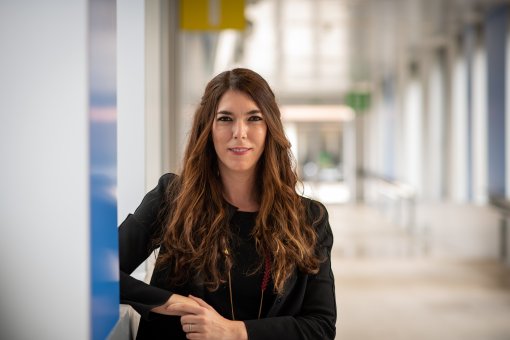Images
Contact

Scientists from around the world come together in Barcelona to discuss cell renewal, a process tightly linked to ageing and neurodegenerative and cardiovascular disease.
On 21, 22 and 23 March, the Institut d’Estudis Catalans is hosting the Barcelona Biomed Conference “Mitochondrial Autophagy”;. This event will congregate 150 national and international experts to discuss the latest breakthroughs in the field of mitochondrial autophagy, a process that involves the break down and recycling of specific components of damaged cells. Over the last five years, mitochondrial autophagy has become one of the focal points of studies into cell ageing and diseases with a high social impact, such as neurodegenerative and cardiovascular diseases.
The Barcelona Biomed Conference provides an interdisciplinary forum in which 20 internationally recognised speakers –ten from North America, eight from Europe and two from Japan – will talk about their latest findings in the field. Promoted by IRB Barcelona and the Fundación BBVA, the conference is organised by Antonio Zorzano from IRB Barcelona and Luca Scorrano from the University of Geneva in Switzerland.
Renew or die
Autophagy is responsible for breaking down cell waste in order to prepare it for later removal or recycling. This cleaning process can affect any damaged cell component, such as mitochondria, crucial cell organelles responsible for providing cells with energy. The mechanism of autophagy specifically for mitochondria is called mitochondrial autophagy or mitophagy.
When the capacity “to clean up atypical mitochondria” is impaired, cells that remain in the body for a long time, such as neurons, heart cells and skeletal muscle cells, are especially affected. “The accumulation of damaged mitochondria over years leads to a deteriorated cell, thus increasing the risk of neurodegenerative diseases, such as Parkinson’s, cardiovascular diseases, some muscle dystrophies, and metabolic disorders such as diabetes and obesity”, explains Zorzano.
Although mitochondria were discovered more than 150 years ago, it was only a few years ago that these cell engines were linked to cell death programmes, otherwise known as apoptosis, mechanisms that control how long a cell lives. “These results may be relevant for cancer”, states Scorrano. “We know that decreased mitophagy cause an increase in apoptosis. So we could enhance cancer cell death by manipulating the mitochondria in these cells”.
At present, the challenge is to unravel the molecular mechanisms underlying mitophagy in order to gain a better understanding of the bases of many diseases and to translate this knowledge into the clinical setting in order to fight them.
Ana-María Cuervo, from the Albert Einstein College of Medicine in New York (USA), is among the guest speakers at the conference. Cuervo is considered one of the world’s leading experts in autophagy. She will present her latest work on autophagy in response to stress and its relation to cell ageing.
Thomas Langer, from the University of Cologne in Germany, will provide data to further support the notion of a link between damaged mitochondria and neurodegenerative diseases such as Parkinson’s and Alzheimer’s.
Orian Shirihai, from Boston University in the US, was one of the first scientists to associate mitochondrial degeneration with disease. He will talk about the molecular mechanisms that control mitochondrial destruction.
About IRB Barcelona
The Institute for Research in Biomedicine (IRB Barcelona) pursues a society free of disease. To this end, it conducts multidisciplinary research of excellence to cure cancer and other diseases linked to ageing. It establishes technology transfer agreements with the pharmaceutical industry and major hospitals to bring research results closer to society, and organises a range of science outreach activities to engage the public in an open dialogue. IRB Barcelona is an international centre that hosts 400 researchers and more than 30 nationalities. Recognised as a Severo Ochoa Centre of Excellence since 2011, IRB Barcelona is a CERCA centre and member of the Barcelona Institute of Science and Technology (BIST).




